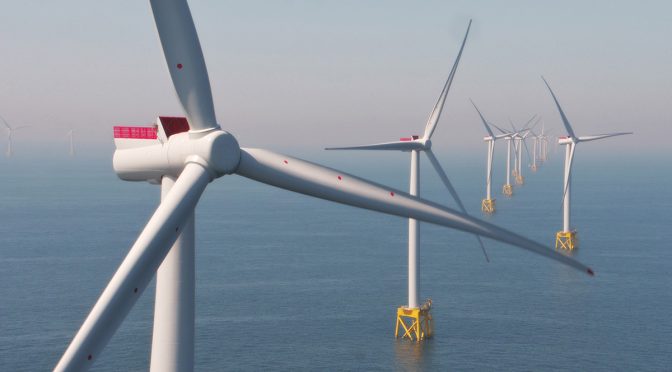Work on one of the UK’s largest offshore wind farms, the Norfolk Boreas site, has been halted due to soaring costs, according to Swedish energy company Vattenfall. The government aims to double wind capacity by 2030 and achieve net zero emissions by 2050, making the decision a significant setback for the renewable energy industry in the UK.
Vattenfall was awarded a government Contract for Difference (CfD) for the first phase of the Norfolk Boreas site, which is part of one of the world’s largest offshore wind zones. The CfD guarantees a fixed price for electricity production over a 15-year period. If prices are low, companies receive a subsidy, but if prices rise, any gains must be paid back. However, Vattenfall stated that costs had risen by 40% due to inflation, supply issues, and rising wages, making the agreed government payment insufficient to cover these increased expenses.
As a result, Vattenfall has decided to shut down development of the Norfolk Boreas site. The company also stated that it will review two other Norfolk sites, Vanguard East and Vanguard West, and evaluate the best way forward for all three projects in the Norfolk Zone. Vattenfall, however, remains committed to the region and its future wind power projects.
The decision to halt work on the Norfolk Boreas site has local implications. Norfolk County Council expressed disappointment but was reassured by Vattenfall that the rest of the Norfolk offshore plan would continue. However, the impact will be felt on the local supply chain, which consists of around 1,000 companies. Organizations like Orbis Energy, a clean energy hub based in Lowestoft, recognized the disappointing nature of the decision but believe that there are opportunities and solutions to get the project back on track. They emphasize the need for government support and smart cost reduction strategies to make the region the most cost-effective for offshore wind.
Experts have weighed in on the situation, highlighting the rising costs in the renewable energy sector. Professor Aled Jones from Anglia Ruskin University stated that the government should consider the role of the private sector in powering the future of Britain. He noted that while renewable energy offers significant returns on investment, these returns are realized over longer periods than the private sector is currently willing to tolerate. Head of Energy at the Energy and Climate Intelligence Unit, Jess Ralston, urged the government to take rising costs into account when awarding contracts. Failure to do so could result in further reliance on foreign gas and higher bills for households.
The Department for Energy Security and Net Zero defended the CfD scheme, stating that it offers developers protection from volatile wholesale prices. The government acknowledges the supply chain pressures faced by the sector globally and is open to listening to companies’ concerns. Members of Parliament, including Duncan Baker and Peter Aldous, have expressed various opinions on the issue, calling for a review of the CfD mechanism and addressing the outdated infrastructure for offshore wind delivery.
In conclusion, the decision to pause work on the Norfolk offshore wind farm due to rising costs is a setback for the UK’s renewable energy industry. The government’s targets for wind capacity and emissions reduction will require careful consideration of the challenges faced by energy companies. While there is disappointment and frustration among industry experts and MPs, there is still optimism that the issue can be resolved to ensure the successful development of offshore wind projects in the future.


